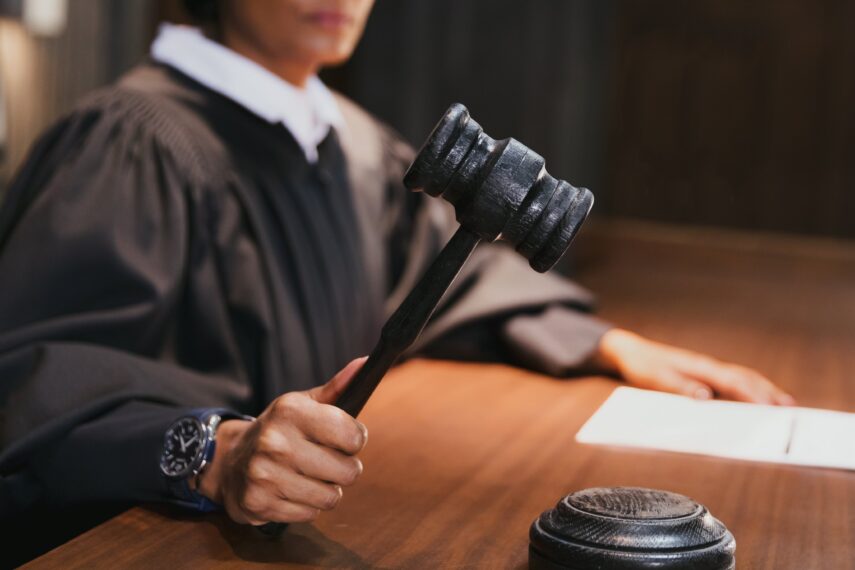Are you or a loved one facing a bail hearing? The legal process can be overwhelming, but with the right knowledge and preparation, you can improve your chances of a successful outcome. In this blog post, we’ll provide essential tips and advice on how to navigate bail hearings effectively. So let’s dive in and start exploring everything you need to know for a successful outcome!
Seeking Professional Legal Representation

Legal representation can be a game-changer when faced with the intimidating process of a bail hearing. A proficient lawyer like Aswani Datt acts as your guide, navigating you through the complexities of the legal system and advocating on your behalf. Besides a clear understanding of the law, they bring essential negotiation skills to the table, boosting your chances of getting bail.
Choosing the right lawyer should be a thoughtful process. Evaluate the attorney’s experience, reputation, and field of expertise. It’s equally crucial to look for a lawyer with whom you can communicate openly, someone who’s transparent about legal fees and willing to answer your queries without hesitation. Make sure they’re well-versed with the bail system and experienced in local courts as protocols can vary.
Lastly, don’t hesitate to tap into legal aid resources if you cannot afford private representation. Many jurisdictions offer public defenders or legal aid societies specifically for individuals who lack the resources to hire a private attorney. This won’t guarantee a favorable outcome, but professional representation significantly enhances your prospects.
Gathering Strong Evidence for Bail
In preparing for a bail hearing, strong, convincing evidence is crucial. It should highlight your ties to the community, financial situation, employment status, and family responsibilities, among other factors, as these can impact the court’s decision. Providing letters of support from friends, family, or employers can substantiate your claims.
Ensure all documentation is relevant and up-to-date. This may include proof of employment, bank statements, family testimonials, or letters from community leaders. Double-check all paperwork for errors or inconsistencies that could undermine your credibility.
It’s also wise to anticipate potential arguments from the prosecution. If you can predict their objections, you can proactively address these in your evidence, further strengthening your case. Working closely with your legal representative, you can build a persuasive case, demonstrating your commitment to following court procedures.
Presenting a Compelling Bail Application

Once you have gathered your evidence, the next step is to present it compellingly to the judge. The information should be delivered in an organized, coherent, and persuasive manner. Keep in mind that your presentation should demonstrate your trustworthiness and commitment to appear at all future court dates.
Preparation is crucial for a successful bail application. Practice your statement with your legal representative, ensuring that you can confidently articulate your position. Always focus on facts that show your ties to the community, stable employment, and lack of previous criminal record if applicable.
Communicating Effectively with the Judge or Magistrate
Effective communication is not just about what you say but how you say it. Be polite, articulate, and honest. Listen carefully to the judge’s instructions and questions, providing clear, concise responses. Avoid legal jargon unless you’re comfortable with it; straightforward language is usually more effective.
Eye contact, posture, and tone of voice also contribute to the impression you make. Ensure your body language conveys respect and attentiveness. Keep in mind that judges and magistrates are trained to observe these cues, and their interpretations can affect their decision.
Additionally, never interrupt the judge or show signs of impatience or frustration. Remember, you’re not just communicating your case facts; you’re also showing your respect for the court process and commitment to adhering to the legal procedures.
Addressing Potential Concerns of Flight Risk or Danger to Society

One of the key determinants of whether you’ll be granted bail is whether you’re seen as a flight risk or a potential danger to society. Therefore, it’s essential to directly address these concerns in your bail hearing.
If there’s a possibility the prosecution may portray you as a flight risk, provide evidence of your strong ties to the community, stable employment, or any other factors that make it less likely for you to abscond. If you have a record of appearing for past court dates, be sure to highlight this.
In case there are concerns about you being a danger to the community, provide evidence of good characters, like testimonials from community members or proof of community service. If applicable, point out that you have no violent criminal history, and remind the court that everyone is presumed innocent until proven guilty.
Demonstrating Strong Ties to the Community
One of the most persuasive arguments in a bail hearing is demonstrating your strong ties to the community. This includes family obligations, employment stability, community involvement, and local property ownership. These ties imply a lower flight risk and make a compelling case for your release on bail.
Family ties can be demonstrated through shared financial responsibilities or caring for dependents. Stable employment shows your reliability and commitment to the community, while proof of involvement in local organizations or volunteer work highlights your positive influence on the community.
Remember, it’s not just about showing these ties but demonstrating how they would motivate you to meet your court obligations. The stronger the ties, the stronger your case for bail.
Exploring Alternative Options

Sometimes, traditional bail may not be a feasible option, particularly if the bail amount is prohibitively high. In such cases, alternative bail options can be explored. These include own recognizance release, property bonds, or third-party custodians, among others.
Release on your own recognizance (ROR) means you’re released based on your promise to appear in court. No bail money is required. This option is considered for low-risk defendants with strong community ties and no criminal history.
Property bonds involve putting up property as collateral to secure your release. However, the property’s value must be twice the bail amount. Third-party custodians, usually responsible adults like a parent or employers, can vouch for you and assume responsibility for your court appearances.
When exploring these options, work closely with your lawyer to understand the implications and responsibilities of each choice. This will ensure you make an informed decision that suits your unique circumstances.
Conclusion

In sum, navigating bail hearings can be a complex process that requires careful preparation. By understanding the legal guidelines, building a strong defense strategy, and working with an experienced attorney who is knowledgeable in criminal law, you will be better equipped to ensure that your rights are protected during the proceedings and ultimately obtain the best possible outcome for your case. With these tips in mind, you should feel confident entering into any bail hearing.







